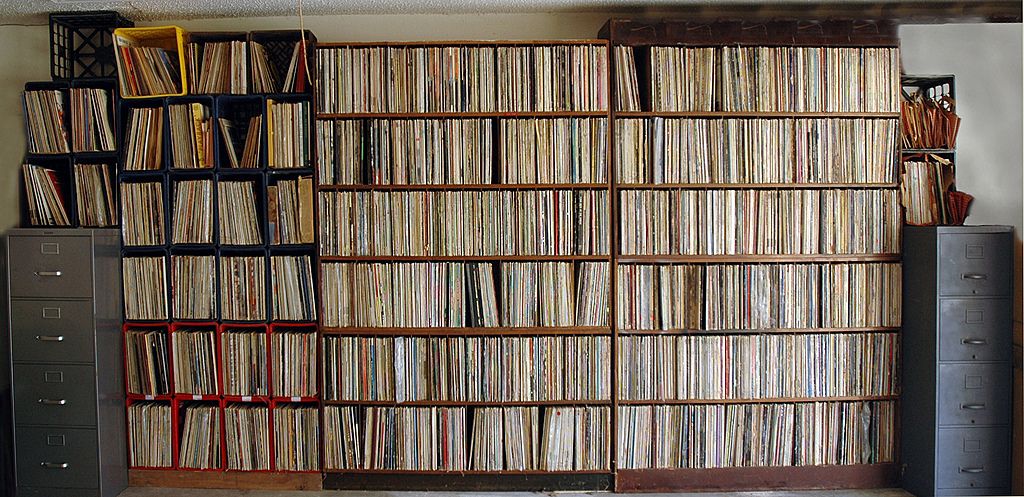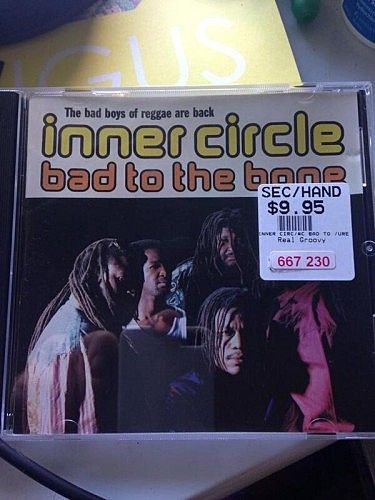Internet Histories | 24 March
The state of writing on music writing, working as a cultured robot or not at all and YouTube unpleasantness
This fortnight:
The state of writing on music writing | Education reporting in NZ
Working as a cultured robot or not at all | YouTube unpleasantness
Joe
For the first time in many years, jazz critic Ted Gioia spent “an afternoon looking through the leading music periodicals”. What he found (and wrote about for The Daily Beast) will shock you:
What did I learn? Pretty much what I expected. I found out what the chart-topping musicians are wearing (or, in many instances, not wearing). I got updates on their love life, and learned whose marriages are on the rocks. I read updates on the legal proceedings of the rich and famous. I got insights into the food preferences and travel routines of megastars. And I read some reviews of albums, and got told by “‘critics” (I use that term loosely) that they were “badass,” “hot,” “sexy,” “tripped-out,” and “freaky".
What’s surprising about reading Gioia’s argument is not that it’s a contentious act of fogeyism; it’s more that it’s so roundly mockable in its attempt to make its thesis statement that music journalism has degenerated into lifestyle reporting. It’s structurally so weak! He uses anecdotes about how mainstream broadcasters won’t play performances from the American Music Awards and people didn’t take Harry Connick Jr seriously for saying ‘pentatonic’ on American Idol. You heard him - the dumbing-down has even reached American Idol.
He counts uses of the term “lifestyle” over time in one newspaper (admittedly, this preoccupation with lifestyle is interesting in itself and probably deserves its own better article) while refusing to countenance the idea that ‘celebrity news’ has gone back decades (possibly more, except once upon a time it was called ‘society news’, I guess). Most detrimentally, he refuses to get all shots fired on anybody, so we’re deprived of an actual example of the bad writing he talks about. Which, I mean, if you’re going to take apart bad writing for us, do throw us a bone.
I’m actually not against a discussion of how things sound and are arranged, though I think this matters more for some genres than others and you shouldn’t need a BMus to do it. I also think that a lot of music writing is sloppily written, goes without editorial support or oversight, and is being written in a hurry to sell the product rather than communicate anything essential about it. But pieces like Gioia’s don’t ask anything particularly challenging, because reactionary fogeydom never does. I guess the racial subtext of someone getting angry that we’re celebrating “celebrity artists” who rely on “Autotune” is sort of challenging the way that seeing a National Front rally is challenging, I dunno.
Good but flawed pieces by Mike Powell at Pitchfork and Jody Rosen at Vulture responding to Giola – the flaw being that in falling over themselves to go HAM on the guy they forget to acknowledge that there are some real problems with a lot of pop music writing and commentary. Also lots of dickwaving and posting record collections on Twitter – which is ironic, since the fact that you no longer need an extensive record collection in 2014 to even consider writing about music with authority is one of the few objectively positive developments in music journalism this century, an explosion of new and vital voices that weren’t fed a handsome allowance for their hobbies from year dot.
[caption id="" align="aligncenter" width="375"] The author's record collection, painstakingly assorted by genre[/caption]
Also! Although the state of children’s education is apparently extraordinarily important as a NZ voting issue, everything you tend to read about it is as follows:
- Self-congratulatory Government press releases backed with inscrutable policy summaries in interviews (“We’re thinking of the children, moving forward to consult in consensus on this”)
- Teachers’ union press releases that say why the state of things is bad in the abstract but don’t actually make you care (“Just think of the children!”)
- Stultifying Herald editorials that are the written equivalent of low-protein gruel (“The children, it can be agreed, must be thought of. The government should be commended on its efforts, while taking caution to assure parents that their children’s education’s interests are at best heart.”)
This is why Jolisa Gracewood’s two personal pieces – one written in 2010 after her oldest son’s experiences in the American school system, one written last week now that she’s back here and seeing the government’s proposed seachanges – are required reading. She’s a very good writer, but there’s a simple trick to what makes these pieces depressing, upsetting, and sympathetic. If you want to find out what kind of effect a primary school at its best (or its despondent worst) can have, try listening to your kid first and go looking for answers from there.
Matt
Two of my flatmates are baristas in two different, equally trendy suburbs of Melbourne's inner north. Once they liked coffee culture, but their stories from the frontlines are nowadays packed with mechanical rudeness and it seems more like their souls than their coffee is ground fresh daily. The service industry has never been the most fun thing ever, but this eye-opening piece reveals the skills involved in making a good coffee are no longer limited to, you know, making a good coffee:
In Brooklyn, as you order your home-grown-arugula and lemon pizza, your server can entertain you with their opinions on Jonathan Franzen, their fluency in Swedish design concepts. Tipping them is kind of like supporting the arts. Somewhere, I imagine, there really is a place where the server and the served interact on equal footing, reciprocally enjoying a shared culture. Perhaps it’s simply an issue of remuneration. Maybe that place is in Portland, where rents are cheaper and the rich aren’t as, well, filthily so.
I'd previously thought such bleak visions of the present-future safely constrained within Neal Stephenson's Snow Crash, but it could be worse: if you are what you work, what happens when you don't? A recent piece in The Guardian gives a forceful and terrifying precis of the prospects young people in Britain face today. It's a gripping and depressing read, but it can probably be summed up in this line from the header:
If you were to line up every unemployed young person in Britain, they would stretch from London to Edinburgh.
Good practice for the dole queue?
Uther
A really hideous thing is going on in the YouTube community right now. In what feels like a dully inevitable way, the societal maths of a largely female pre-teen and teen fanbase worshipping older male idols worked themselves out into what can really only be termed in the most sadly tabloid terms as a sex abuse scandal. While there have been revelations in the past they have always been chalked up to single bad eggs.
Now what started as revelations around one YouTuber's appalling abuse of a fan about two weeks ago has flooded into many, many accusations, often backed up with multiple testimonies or even, in some cases, straight up confessions from the perpetrators. It can't be laid at the feet of a single bad person right now, this is a systemic problem and while it is nice to see that the community is making active moves to address it the most interesting thing going on is the kind of apologies we're seeing from the accused men.
The apologies these men are coming out with are, not to put too fine a point on it, the most depressingly transparent sorry-not-sorrys or “Well, I'm Sorry You're Upset”s I've ever read. (It's worth noting that both of those apologies have been edited since they were initially posted. Both were originally much less apologetic and much more clearly focused on saving face.) The saddest thing in this whole situation that the poor-me-ness of those apologies and the others like them is that they are working. A large part of their fanbase is standing by them. As more and more proof appears, as more and more people come forward, as more and more people actually, basically confess, the chorus of “But this'll ruin their careers!” grows too. It's sickening and it's a massively telling moment around the new kind of cultural conversations that things like YouTube and Tumblr have created.
Because, well, these guys were supposed to be different. They were the thinking person's heart throb. They were in bands that played exclusive songs about Doctor Who, they cosplayed as characters from Welcome to Nightvale, they were charming, they were inoffensive. So when their apologies fit within those same narratives – “Oh, gosh! Sorry I didn't know I was raping people!” – they actually seem to work on some part of their audience. That these men will survive the repercussions of their actions - not through denial or running away - by manipulating their audience through seeming to apologise, marks a concerning turn in the still-developing spaces that young people build for themselves online.



